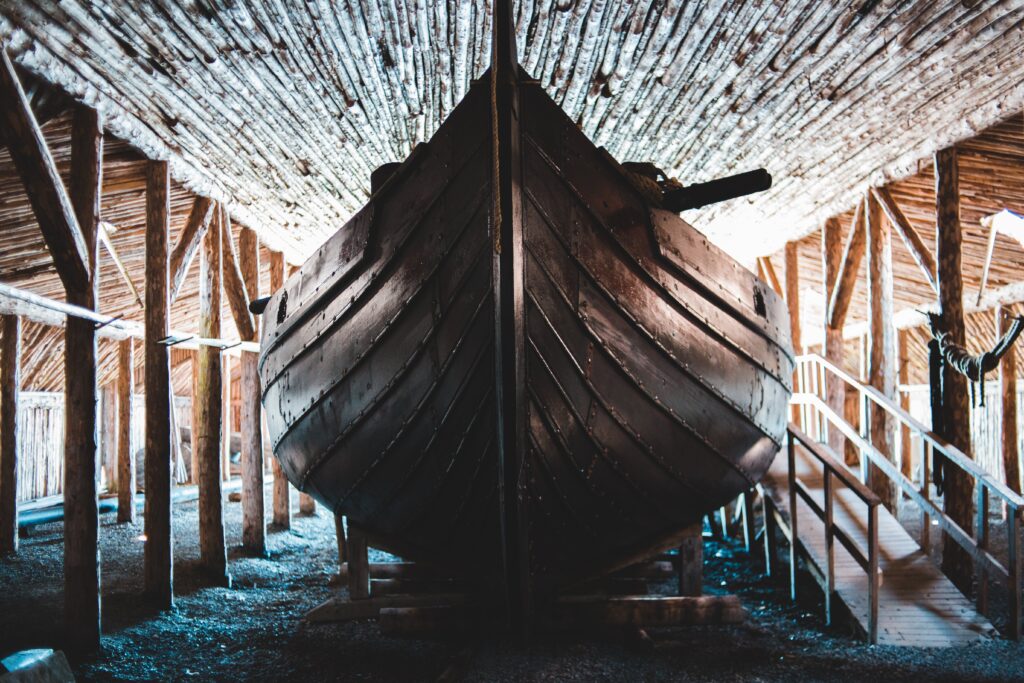The Viking Age, spanning from the late 8th to the 11th century, remains one of the most intriguing and dynamic periods in European history. Known for their mastery of the seas, the Vikings were not merely ruthless raiders but also skilled traders and daring explorers. In this blog, we’ll delve into the multifaceted world of the Vikings, exploring their society, culture, and lasting impact on the world.
Origins of the Vikings
The Vikings originated from the Scandinavian regions of present-day Norway, Sweden, and Denmark. Faced with overpopulation and limited resources, many Vikings set sail in search of new lands, wealth, and adventure. Equipped with sturdy longships and navigational prowess, they ventured far beyond their homelands, leaving an indelible mark on the lands they encountered.
Raiders of the North
The image of Vikings as fearsome raiders looting coastal villages and monasteries is well-known, and indeed, raiding was a significant aspect of Viking society. Driven by a combination of economic motives, desire for glory, and belief in the afterlife, Viking raiders struck terror into the hearts of their targets across Europe. From the British Isles to the shores of France and beyond, Viking longships carried warriors seeking plunder and prestige.


Traders and Merchants
However, the Vikings were not solely warriors bent on conquest. They were also skilled traders and merchants who established extensive trade networks throughout Europe and beyond. From the bustling markets of Scandinavia to the distant markets of the Byzantine Empire and the Middle East, Viking traders exchanged goods ranging from furs and timber to slaves and exotic treasures. Their far-reaching trade routes connected distant lands and facilitated cultural exchange.

Explorers of the Unknown
The spirit of exploration was deeply ingrained in Viking culture, driving them to venture into uncharted waters in search of new lands and opportunities. Legendary figures like Leif Erikson are remembered for their bold expeditions to distant shores, including the exploration of North America centuries before Christopher Columbus. Through their explorations, the Vikings pushed the boundaries of the known world and left an enduring legacy.
Viking Society and Culture
Viking society was organized into chieftaincies and clans, with a warrior aristocracy at the top and farmers, craftsmen, and traders making up the majority. Despite their reputation as fierce warriors, the Vikings were also skilled craftsmen, artists, and poets, as evidenced by their intricate metalwork, epic sagas, and majestic longhouses. Religion played a central role in Viking society, with gods like Odin, Thor, and Freyja revered in elaborate rituals and sacrifices.
Legacy of the Vikings
The impact of the Vikings on world history is profound and far-reaching. Their expeditions and settlements laid the foundation for the formation of modern nations such as England, Ireland, and Russia. Their influence can be seen in language, law, and culture, with many English words of Norse origin and remnants of Viking legal systems still present today. Moreover, the Vikings’ spirit of exploration and adventure continues to captivate the imagination, inspiring countless works of literature, art, and cinema.
The Viking Age represents a fascinating chapter in human history, characterized by a unique blend of exploration, conquest, and cultural exchange. From their daring raids to their far-flung trading ventures, the Vikings left an indelible mark on the world that continues to be felt to this day. By exploring the multifaceted nature of Viking society and culture, we gain a deeper understanding of this dynamic and complex civilization.

